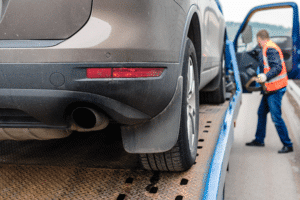RV transporters offer different services based on your vehicle. The most common RV or trailer transport services are driving the vehicle to its destination or towing it. Each of these services suits different trailers or RV’s as well as your preference. Ultimately, the choice is yours, but we will break out some factors to consider when selecting the best service for you.
What RVs or Trailers Can be Towed?
Obviously, not all RVs are motorized, and some can only be towed. Examples of trailers that can only be towed:
- Camping Trailers (Also known as “Pop-up” trailers)
- Truck Campers (Where the trailer sits over the truck bed)
- Travel Trailers (A trailer with rigid sides and no motor)
- Fifth-wheel Travel Trailer (Similar to a travel trailer, but part of the trailer body extends over a special hitch in the truck bed)
Which RVs Can be Driven to Delivery?
There are three main classes of motorized RVs:
- Class A – 21 to 40 feet and built on a commercial truck or bus chassis
- Class B – 16 to 21 feet and built on a van chassis
- Class C – 20 to 28 feet and built on a truck chassis with part of the RV extending over the truck cab
RV transporters will typically drive a motorized RV to its destination, as this is usually the most cost-effective option. Towing an RV is likely to be more expensive, as it requires specialized trucks and equipment.
Benefits of Having an RV Towed
While RV driving services may be cheaper, there are additional benefits to an RV towing service. Mainly, your RV will arrive without any additional miles. The need for RV transport usually comes along with purchasing an RV online. These RVs are typically used and you want to avoid putting unnecessary miles on.
You can also limit the risk of delay in transport as the RV transporter is familiar with their equipment and the condition it’s in.
If the RV is not operational, you will want to share that with your carrier and will need to have the RV towed.
Whether you choose to have RV driving or RV hauling, you should still carefully prepare it for transportation and ensure that the transporter carries the appropriate authority and insurance for the job.




